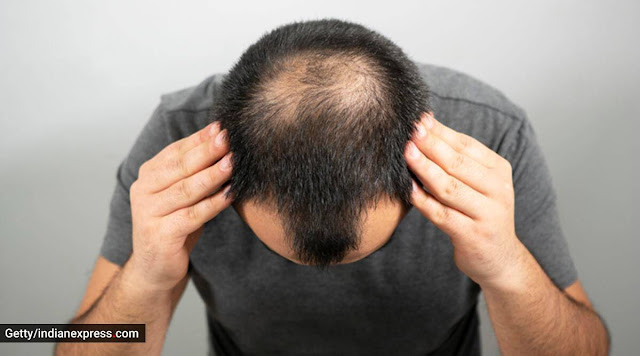HOW TO MANAGE HAIR FALL
Hair fall is a condition where there is excessive loss of hair loss from the scalp. It can be temporary or permanent and maybe the result of heredity traits, hormonal changes, certain medical conditions or as a part of aging. It is normal to lose 100-150 hairs per day. Aging can lead to thinning of hair in their 30s and 40s.
CAUSES
It may be due to :
• Physical damage such as breakage of hair shafts, chemical damage or loss of hair follicles.
• Certain medical conditions such as seborrhoeic dermatitis (dandruff), Thyroid disorders, autoimmune diseases, long-lasting illnesses and fevers, certain medications used for conditions such as high blood pressure, arthritis, depression, heart problems and chemotherapy.
• Nutritional deficiency such as protein deficiency, anemia, vitamins and minerals deficiency, calcium deficiency, etc.
• Hair fall can be caused by stress, emotional trauma and sudden shocks, childbirth, high fever, sudden weight loss, major surgery, etc. A hereditary trait is the most common cause of hair fall in cases of hair loss resulting in baldness.
FORMS OF HAIR FALL
1. Patchy hair loss: Small, circular patchy hair loss on the scalp which usually grows back is called alopecia areata. Thinning of hair due to physical force such as from tight hairstyles is called traction alopecia. Sometimes such hair fall can be caused by a fungal infection, it is called tinea capitis. Another condition where there is a tendency in a person to pull out hair follicles is called trichotillomania.
2. Diffuse hair loss: Diffuse hair loss are usually caused by malnutrition, dandruff, endocrinal disorders, hormonal imbalance, pattern alopecia, drug-induced alopecia, long-lasting illness like cancer and a condition called telogen effluvium.
3. Total loss: Total loss of hair such as in alopecia totalis or permanent loss of hair due to scarring as in lichen planus of the scalp.
PREVENTION
• A good, healthy hair requires proper hair care regimen such as good hygiene, regular shampooing and conditioning.
• A healthy hair needs a healthy diet and a good nutrition.
• Take food that is rich in protein, calcium and iron.
• Avoid wearing hair in tight hairstyles like tight buns, braids, ponytails, etc.
• Avoid unnecessary pulling, twisting and rubbing of the hair.
• Avoid harmful chemical treatments, heat treatments and beauty regimens that can damage the hair
• Avoid too much oiling of hair if it is already an oily hair and also avoid dryness of hair.
• Use mild shampoo and conditioners. Avoid too many styling and hair products.
• Treating the underlying medical conditions like thyroid disease, anemia, and hormonal imbalance can reduce the hair los𝙎.




No comments:
Post a Comment
If you want to know more, let me know